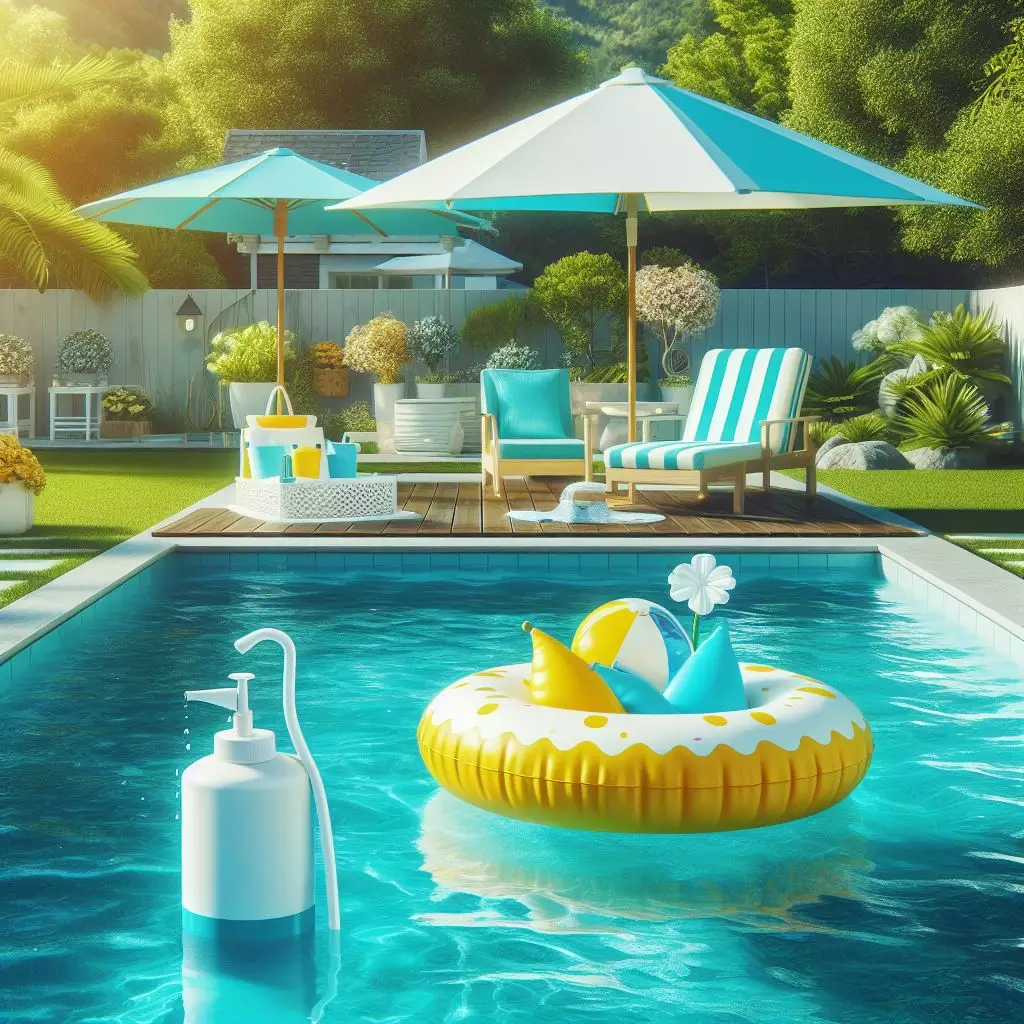Pool chlorine floaters are essential tools for maintaining proper chlorine levels and ensuring water sanitation in swimming pools. However, overusing chlorine floaters can lead to various problems that affect water quality, pool equipment, and swimmers’ health. In this comprehensive article, we will explore the issues caused by the overuse of pool chlorine floaters and provide effective solutions to maintain optimal chlorine levels and a safe swimming environment.

Understanding Pool Chlorine Floaters
Pool chlorine floaters are devices designed to dispense chlorine tablets or sticks into the pool water to maintain adequate chlorine levels. They are convenient and commonly used for continuous chlorination, ensuring constant sanitation and algae prevention.
The Impact of Overuse
While pool chlorine floaters are effective tools for chlorine distribution, overusing them can lead to several issues that compromise water quality and safety. Excessive chlorine levels, equipment damage, and skin irritation are among the problems associated with overuse.
Excessive Chlorine Levels
Overusing pool chlorine floaters can result in excessively high chlorine levels in the pool water. This leads to imbalanced water chemistry, causing skin and eye irritation, respiratory problems, and unpleasant chlorine odors. Maintaining proper chlorine levels is essential for a safe and comfortable swimming experience.
Damage to Pool Equipment
Excessive chlorine levels caused by overuse of chlorine floaters can damage pool equipment and infrastructure. Chlorine is a corrosive chemical that can degrade pool surfaces, equipment components, and plumbing fixtures over time. This includes pool liners, pumps, filters, and metal fittings.
Skin and Eye Irritation
High chlorine levels resulting from overuse of chlorine floaters can irritate swimmers’ skin and eyes. This leads to redness, itching, dryness, and discomfort, especially for individuals with sensitive skin or allergies. Proper chlorine management is crucial to prevent skin and eye irritation.
Unpleasant Chlorine Odors
Excessive chlorine levels in pool water can produce strong and unpleasant chlorine odors, which are often perceived as off-putting and undesirable. Chlorine odors are indicative of imbalanced water chemistry and poor water quality, detracting from the overall swimming experience.
Solutions to Overuse Issues
Addressing the issues caused by overuse of pool chlorine floaters requires proactive measures and effective solutions. Pool owners can implement the following strategies to maintain optimal chlorine levels and ensure a safe and enjoyable swimming environment:
a. Regular Monitoring of Chlorine Levels
Monitor chlorine levels regularly using test kits or digital meters to ensure they remain within the recommended range. Adjust chlorine floater usage based on test results to prevent over-chlorination.
b. Proper Chlorine Floater Placement
Place chlorine floaters in different areas of the pool to distribute chlorine evenly and prevent localized over-chlorination. Avoid placing floaters near pool surfaces or equipment to minimize the risk of damage.
c. Use of Alternative Sanitization Methods
Consider supplementing chlorine floater usage with alternative sanitization methods such as saltwater chlorination, UV sterilization, or ozone treatment. This reduces reliance on chlorine floaters and helps maintain balanced water chemistry.
d. Regular Maintenance of Pool Equipment
Conduct regular maintenance checks on pool equipment to detect and address any damage or corrosion caused by excessive chlorine exposure. Replace worn-out or damaged components promptly to prevent further deterioration.
e. Promotion of Proper Swimmer Hygiene
Educate pool users about the importance of proper hygiene practices, including showering before swimming and refraining from urinating in the pool. This reduces the introduction of contaminants and helps maintain water quality.
f. Professional Water Testing and Analysis
Seek professional water testing and analysis services from pool maintenance professionals to assess water quality and identify any imbalances or issues requiring corrective action.
Environmental Considerations
While addressing overuse issues, it is crucial to consider environmental implications. Proper chlorine management and maintenance practices help minimize chlorine wastage, reduce environmental impact, and promote sustainable pool maintenance practices.
Educational Outreach
Educating pool owners, maintenance personnel, and pool users about proper chlorine floater usage and maintenance practices is essential. Provide training on chlorine management, water testing procedures, and the importance of maintaining balanced water chemistry.
Conclusion
In conclusion, overuse of pool chlorine floaters can lead to various issues that affect water quality, equipment integrity, and swimmers’ health and comfort. Excessive chlorine levels, equipment damage, skin irritation, and unpleasant odors are among the problems associated with overuse. By implementing proactive measures such as regular monitoring of chlorine levels, proper floater placement, and maintenance of pool equipment, pool owners can address overuse issues and maintain optimal chlorine levels. Additionally, promoting proper swimmer hygiene, exploring alternative sanitization methods, and seeking professional water testing and analysis services contribute to ensuring a safe and enjoyable swimming environment for all.
